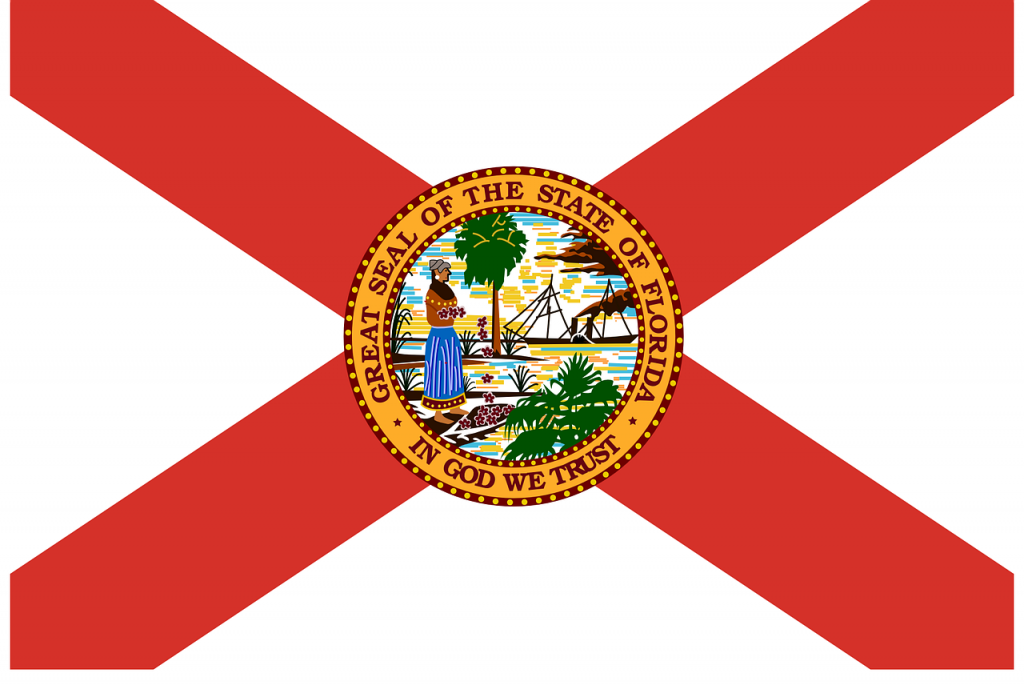Parental Rights In Education Bill Passes Florida Senate But It’s Not Law Yet
The controversial Parental Rights or Don't Say Gay bill heads to Florida Governor DeSantis, but it's not a bill yet.

After passing the Republican-controlled state House two weeks earlier, the Republican-controlled Senate passed the controversial “Don’t Say Gay” bill, sending it to the desk of Florida Governor Ron DeSantis for his approval. The bill, which is actually called the Parental Rights in Education bill, if signed by Gov. DeSantis, would prohibit “classroom discussion about sexual orientation or gender identity.” Gov. DeSantis has previously shown his support for the bill, so the expectation is that he will sign.
“Schools need to be teaching kids to read, to write,” DeSantis said to NBC News. “They need to teach them science, history. We need more civics and understanding of the U.S. Constitution, what makes our country unique, all those basic stuff.” DeSantis also wanted to point out what he feels is the most important part of the parental rights bill. “The larger issue with all of this is parents must have a seat at the table when it comes to what’s going on in their schools,” he said.
The controversy within the naming of the parental rights bill comes from the anti-LGBTQ aspect of the bill. Critics admonish the bill, dubbing it the “Don’t Say Gay” bill. “This is going to endanger the safety of our LGBTQ students and adolescents,” said Democratic Sen. Annette Taddeo to NBC News. “We will not stop until this state moves forward and actually values everyone in it, everyone no matter their sexual orientation.”
Opponents of the parental rights bill claim it puts a bullseye on LGBTQ youth. It has received backlash from Hollywood actors as well as the White House. But supporters of the measure claim there is much more to the bill than being reported and that the bill is being unfairly judged. Proponents say the focus should be on the bill’s intent, which is to give parents more control over their children’s education. “This bill says parents your right to raise your children does not end when they walk into a classroom. This bill recognizes that parents are not the enemy,” Republican Sen. Danny Burgess said ahead of the 22-17 vote on Tuesday. “The bill simply says that there should be an age limit on certain discussions, it’s not a new concept, nor is it radical.”

As a new concept or not, radical or not, the bill’s language, to some, leaves little to be desired. As the measure reads, it bans “classroom instruction by school personnel or third parties on sexual orientation or gender identity” from grades kindergarten through third grade. The parental rights bill also prohibits this teaching “in a manner that is not age-appropriate or developmentally appropriate for students.” Critics of this language say the bill could now be interpreted to include all grade levels rather than just K-3.
Florida Rep. Joe Harding, a Republican, introduced the bill and explained to TIME during its introduction that the intention of the bill is to keep parents “in the know and involved on what’s going on” as it pertains to their child’s education. The parental rights bill was then passed by the House by a 69-47 margin before reaching the state Senate and moving to Gov. DeSantis by a 22-17 vote.
As the bill was created to give parents more of a say-so to what their children are learning in the classroom, the bill also gives parents the right to take legal action if they determine their children are subject to inappropriate instruction concerning “sexual orientation or gender identity.” Harding said to ABC News the bill wasn’t intended to out a student, but it was intended to “create procedures around how, when and how long information was withheld from parents so that there was a clear process and kids knew what to expect.”
But the further this bill has moved forward, the louder the opponents have become. Equality Florida, an LGBTQ advocacy group tweeted out, “Let us be clear: should the vague language of this bill be interpreted in any way that causes harm to a single child, teacher, or family, we will lead legal action against the State of Florida to challenge this bigoted legislation.” Disney employees even expressed their discontent with the parental rights bill. Ben Siemon, an animation scribe for Disney who counts Disney’s Duck Tales in his credits, tweeted out his concern saying, “I am a LGBT animation writer at Disney and this is why I want the company I love to take a stand against the “Don’t Say Gay” bill.” Siemon’s plea wasn’t the only one from a high-profile Disney employee.
Dana Terrace is an animator and director for the Mouse House and she created the Disney animated series The Owl House. She was very pointed in her comments and has also created a protest calling for action. She is leading a Livestream charity on March 13 to help support LGBTQ youth through the parental rights bill.
The parental rights bill now resides with Gov. DeSantis. His expected signature will not lessen the outcry for the bill and the aim it takes on LGBTQ youths. Hopefully, the intent of the bill is also realized. The entire Parent’s Right in Education bill can be read here.



